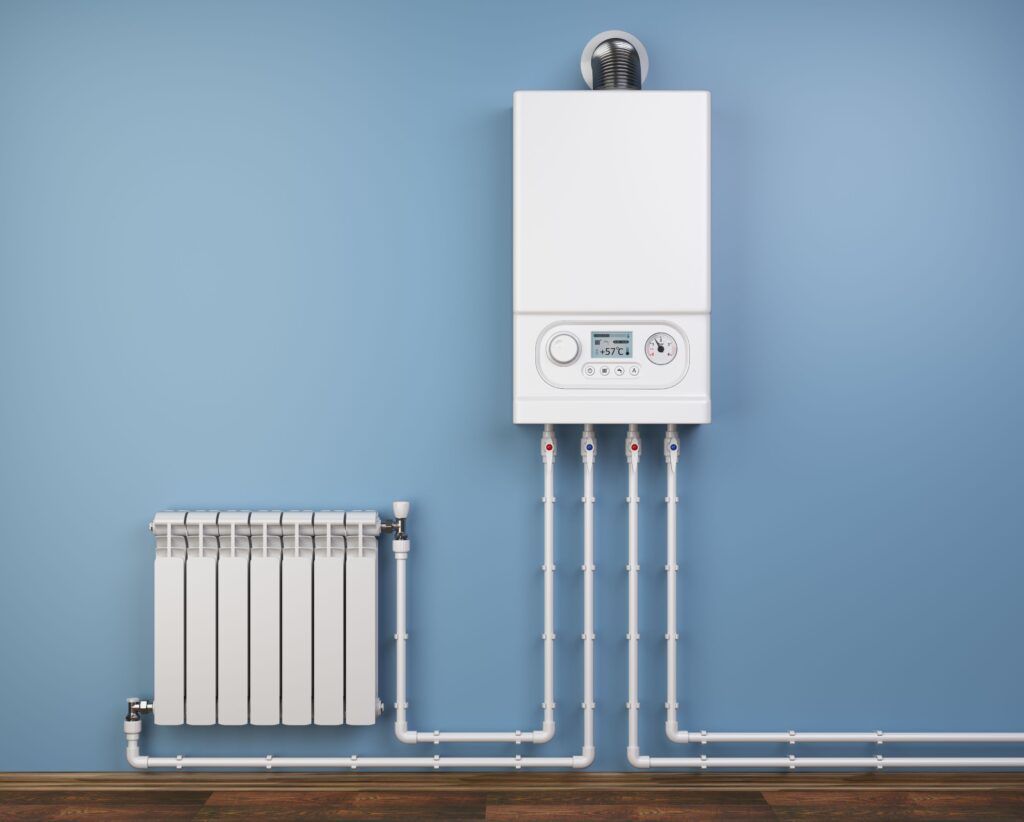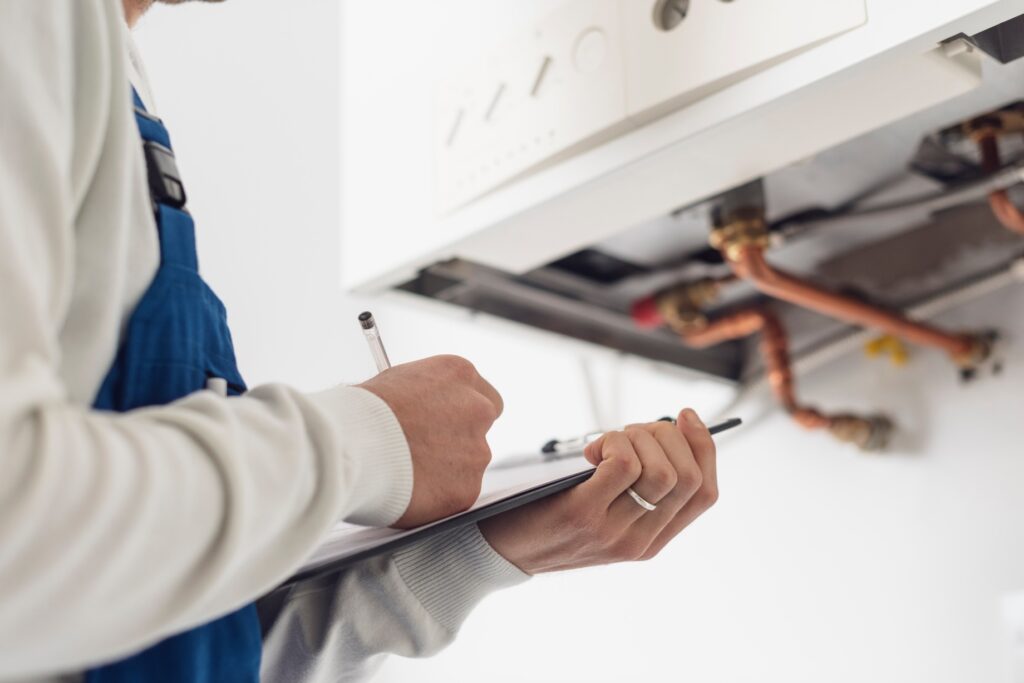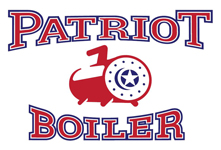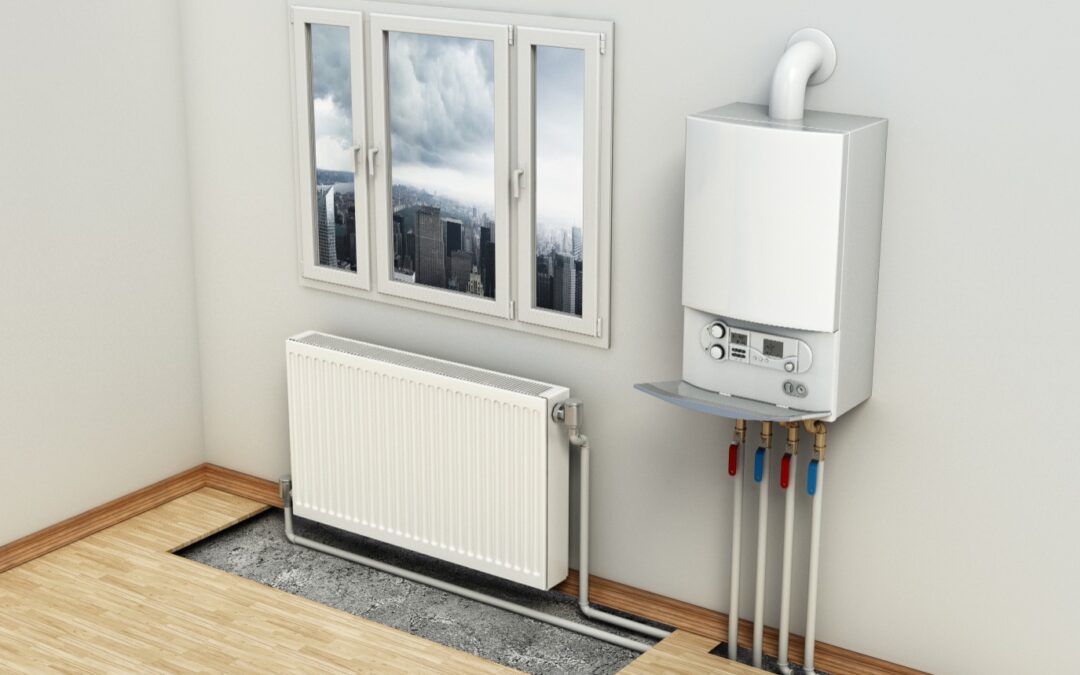Instead of reserving hot water in a tank or cylinder as a conventional boiler does, which can provide hot water on demand, a combi boiler is a type of system that can provide hot water when in need. This hot water can be put to use in your heating system, in your appliances, and in your faucets. Because it is a single unit that serves two ‘combined’ functions, such as heating and producing hot water, it is referred to as a combi boiler.
Because you don’t need a cold water feed tank or a hot water storage tank, these kinds of systems are becoming increasingly popular for smaller properties. It is also due to the fact that it helps you save space.
In some countries, the boiler model known as the “combi” is by far the most common. Since the water is heated instantly whenever a hot tap is on, there is no requirement for a hot water storage cylinder. Because of this, they are the ideal option for homes with a limited amount of available space.
How Does a Combi Boiler Work?
A combination boiler gets its water supply from the public water supply and heats the water on demand as and when it is needed.
When there is a demand for hot water, the boiler’s combustion chamber starts heating up by burning gas. The hot gases rise to the surface and start moving upwards through a network of pipes until they reach the heat exchanger. The heat exchanger consists of a chamber through which the hot gas circulates to heat the cold water surrounding it.
This procedure is performed in accordance with a predetermined program on a conventional boiler. Then the water is held in a cylinder until it is necessary. Because this cycle begins with a combi, once you have either pre-programmed your heating system or turned on a hot water tap, you will have instant access to hot water.
Most combi boilers have a water reserve.
In addition to having a pre-heat system built right in, modern boilers are able to deliver hot water to their customers quickly. When you turn on a hot water faucet, you will immediately have access to hot water. It’s because this is a small reservoir of water that is permanently maintained at a specific temperature. Since most boilers will turn on the burner approximately once an hour to keep this reservoir hot, you might notice that your boiler is turning on even when no one is using any hot water. This is because most boilers are designed to do so.
It is possible to enhance the efficiency of your boiler even further by turning off this function.
However, in the vast majority of domestic environments, it is optional that you do so.
A combination boiler is a type of boiler that houses both a water heater and a central heating boiler within a single, space-saving housing unit. If the temperature in the room falls below the temperature that is set on the room thermostat, it will send a signal to the boiler to tell it to start working so it can pump that heat into the central heating system. If this happens, the boiler will begin working. When the point that the thermostat is set to be reached, the boiler will ‘modulate’. It means that it will turn itself down. It will keep the heating at the appropriate temperature while reducing the amount of energy used.
When a hot water tap is on, a valve inside the boiler redirects heat into the domestic hot water supply. It continues to deliver hot water until the hot water tap is turned off. Then, at this point, the valve returns to the “central heating” position. Either the hot water taps or the central heating system can receive heat from the heater. Yet never both at the same time. It can use neither option simultaneously.
Is it possible to heat my house with a combination boiler?
If the mains water pressure is too low, a combi boiler will only produce a trickle of hot water. Adequate mains water pressure is required for combi boilers to create a good flow rate of water. If the water pressure in your home’s mains supply is low or if you have more than one bathroom, a system boiler may be the most suitable choice for your home.
You must check the boiler’s heat output to guarantee that it is adequate for your requirements. Combination boilers, otherwise known as combi boilers, have two separate heat outputs. One produces domestic hot water, and the other heats the central heating system. The output of the boiler is typically what determines which boiler you go with for your home. It’s because it takes more work and, consequently, more heat to make hot water than it does to heat the radiators.
The many advantages of combination boilers

The majority of combi boilers have controls that are easy to understand and use. Programming your heating system to turn on at the time you need it and at the temperature you select can improve your comfort, give you more control, and lower your annual fuel bills.
The boiler’s casing includes everything required to deliver heat to your radiators and hot water to your taps. It means that you do not need to find room for the hot water storage cylinder or central heating pump. It is ideal for homes that have a limited amount of available space.
A combi boiler offers the additional benefit of requiring less pipework. This is because a tank in the loft or the hot water storage cylinder is not necessary. It also saves time and money during the installation process.
Will a separate cylinder for hot water be required of me?
Because a combination boiler heats water only when a tap is turned on, there is no need for the unit to store previously heated water.
If I have LPG, can I still get a combination boiler?
Yes, there are models of combination boilers explicitly designed for liquid petroleum gas (LPG) use. It enables homes that are not connected to a mains gas grid to reap the benefits of high-efficiency combination boilers.
What kinds of controls and accessories are necessary for a combi boiler to work?
The amendments made to the Building Regulations in April 2018 (more commonly referred to as Boiler Plus) now require timers and controls in every boiler installation. Additionally, additional energy efficiency measures are mandatory for combi boilers.
The new boiler must have an ErP efficiency of at least 92% for heating seasonally occupied spaces.
Control over both time and temperature is essential for every installation.
Every installation of a combi must additionally include at least one of the following:
Compensation due to the weather
Compensation for the load
Flue Recovery of Heat From Gas
Intelligent control that makes use of automation and optimization
What exactly is the technology of condensing?
In order to comply with current building regulations in some countries, manufacturers of gas combi boilers must now include condensing technology in their products. They brought in these regulations to assist homeowners in gaining the benefits of a significantly increased level of efficiency. The combustion gasses would escape into the flue of older boilers, taking their heat with them. This would then result in as much as fifty percent of the heat energy wasted. On the other hand, a condensing boiler makes use of the heat contained within the combustion gasses to pre-heat cold water as it is introduced into the system. It accomplishes this by capturing the heat generated by the combustion process within the system.
Condensing technology is beneficial to environmental protection. It lessens your home’s carbon footprint by cutting down on CO2 emissions. Making more efficient use of energy can also save you an impressive amount of money on your monthly fuel bills.
What are the benefits of utilizing a combination boiler?
In most countries, gas-condensing combination boilers are by far the most common type of boiler installed. They are typically suggested as an excellent option to consider. It’s because they are the most effective method of providing hot water and heating for the typical household.
You will find a list of the benefits of having a combination boiler below. It can assist you in determining whether or not you should go with this kind of heating system.
Because they don’t require external hot and cold water tanks, compact combi boilers are an excellent choice for homes with limited loft space or homes that are smaller overall. The boiler is capable of performing all functions on its own This includes drawing cold water from the mains and circulating hot water throughout the heating system. Ultra-compact versions are available that will also fit in your average kitchen cupboard.
There will never be a shortage of hot water.
Because combi boiler work by generating hot water on demand, there is no danger of running out of hot water. It is in contrast to the situation that can arise when using a regular or system boiler.
Efficient
The modern condensing technology and the ability of combi boilers to only heat the necessary water, as opposed to filling a large tank, contribute to the increased efficiency of these boilers, which can reach up to 95% in some cases.
Economically sensible
You may need to replace the hot water tank, change the cold water tank, and have the boiler installed when you have a traditional boiler system installed in your home. Because you do not have to worry about these additional features, combis can be a more cost-effective option. Because of this, the installation will also be more straightforward and, as a result, more affordable.

Why does gas combi boiler work more efficiently than other types of boilers?
The water is only heated up in combination boilers when necessary. This is the primary reason they are more energy efficient. Manufacturers design them to maximize the amount of energy that is directly used to heat the water. Also, there is no need to heat up and store more water than is necessary. It is because the amount that is directly used to do so is designed to be maximized. It helps to reduce your carbon footprint and also reduces the amount that you have to pay for your energy.
What kind of combination boiler and what size do I need?
When determining which size of gas combi boiler to purchase, there are a few different factors to consider. The amount of anticipated demand for hot water and the total number of radiators that need to be heated are generally the two most important factors to consider.
In general, a combi boiler with 20-35 kW of heating capacity will work for a typical three- to four-bedroom home. However, homeowners with ensuite bathrooms may find that a boiler with 30 to 35 kW of heating capacity is more suitable for their needs. Larger homes typically require a boiler with a capacity of between 35 and 42 kW. However, as an alternative, a system boiler is an option that one should take into consideration.
When selecting a combi boiler, what other factors should I take into account?
When selecting a gas combination boiler, it is important to take into account the various control options that are available for your heating system. You can maximize your boiler’s efficiency and save money on your heating bills by using one of the many modern boilers that come equipped with computerized controls and thermostats of the latest generation.
Also, consider whether or not you would like access to smart functionality. This gives you the ability to control your heating from a remote location, typically through an app on your mobile device.
To learn more about which combi boiler will work best for your needs, contact us at Patriot Boiler! Our boiler experts can advise you on the best boiler product for you!


Recent Comments